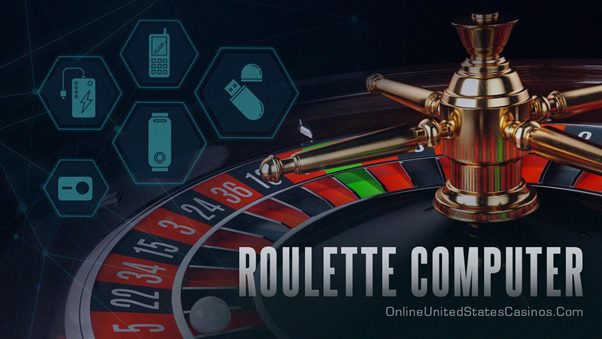What is a Roulette Computer?

Roulette is likely one of the first associations that come to mind when people hear the word casino. For those living under a rock, it is a game of chance that originated from the 18th-century Italian low-stake gaming option known as Biribi. In roulette, players lay down wagers on a board, hoping to accurately guess which wheel position a white ball will land after the wheel it is rotating on stops spinning. There are thirty-six numbered choices and ones that provide almost 50/50 odds, such as wagering on if the little white ball lands on a high (19-36) or low number (1-18), odd or even, and red or black. Bets can get placed before or slightly after a wheel’s rotation starts. However, once it becomes apparent that the spinning ball is beginning to lose momentum, the croupier calls a stop to the betting round. If the ball lands on the green zero pocket/s, all wagers are invalid, and the house wins everything bet on the board. The house edge in the European version (one green pocket) of roulette is 2.6%, while in the American one (two green pockets), it is 5.25%.
Naturally, roulette gets categorized as a game of chance because it is impossible for the human eye and mind to precisely guess the position a ball will land given its speed. That is where computers come into the mix. Roulette ones have gotten exclusively designed to factor in ball deceleration and general physics to approximate the winning wheel sector. They are by far the most effective way to win at the Old Continent’s favorite casino pick. That said, they might not work for online roulette.
The History of Roulette Computers
Cheating at roulette is not something that sprung up thanks to modern technology. Charles Jagger, a 19th-century gambler, rose to prominence in France by using his engineering prowess to detect a bias in a specific game wheel featured by a Monte Carlo casino. He figured out that the wheel in question favored specific numbered positions due to its faulty construction. Following the revelation of the secret behind his Monet Carlo winning streak, over the years, other gamblers experimented with attempting to manipulate roulette games using less sophisticated approaches, like utilizing magnets.
It wasn’t until the 1970s that the public discovered that technology found its way into roulette chicanery. That occurred because a team of French gamblers got busted for creating and using a radio-signal-controlled ball, which they could guide to land within six numbers. Though, the first roulette computer that measured things like bounce and deceleration had been around since the mid-1960s, the brainchild of mathematician and blackjack guru Edward Thorp, who covertly used it at Vegas establishments.
How Do These Computers Work?
As discussed, they use humans’ understanding of physics to gauge the likeliest game outcomes once the little white ball starts spinning. They do this via footage that analyzes several reference points. When a ball passes through one of these, software using image-recognition technology marks the ball’s velocity. As this process gets repeated several times, the computer’s algorithm attains enough data to run it through mathematical operations coming up with the most probable result or what wheel position has the best chances of hosting the ball once it concludes its rotation. In theory, roulette computers should work well with streaming live tables. But that largely depends on the position of the camera and the clearness of the image. They cannot get utilized to determine the outcomes produced by software variations. Such games implement random numberg enerators. That means that their results get created arbitrarily. There is no physics involved there.
Are These Devices Legal?
That depends, as each gaming jurisdiction defines cheating in different ways. Some consider it illegal only if gamblers utilize a method of influencing game results. Nonetheless, other regulators mandate that anything that takes the chance element out of gambling is not allowed. Most overseers lean towards the latter definition. Per some estimates, over 60% of gaming licensing/monitoring organizations forbid their use.
Where to Buy a Roulette Computer?
Even though these items are somewhat controversial, it is not hard for interested parties to purchase them. They are readily available on popular e-commerce websites like eBay and Amazon. Naturally, since they are merely a piece of technology, it is not illegal to sell them. Only their use is subject to gaming regulation. That said, the computers sold via the mentioned websites are not the top-end products veteran casino patrons like to have in their arsenal. These come from brands called Hybrid and MyRulet FF. The first costs $80,000 and is by far the best product of its kind, while the latter’s price tag is $800. It is a far cruder device that still works.
About the Author
Shelly Schiff has been working in the gambling industry since 2009, mainly on the digital side of things, employed by OUSC. However, over her eleven-year career, Shelly has provided content for many other top interactive gaming websites. She knows all there is to know about slots and has in-depth knowledge of the most popular table games. Her golden retriever Garry occupies most of her leisure time. Though, when she can, she loves reading Jim Thompson-like crime novels.
